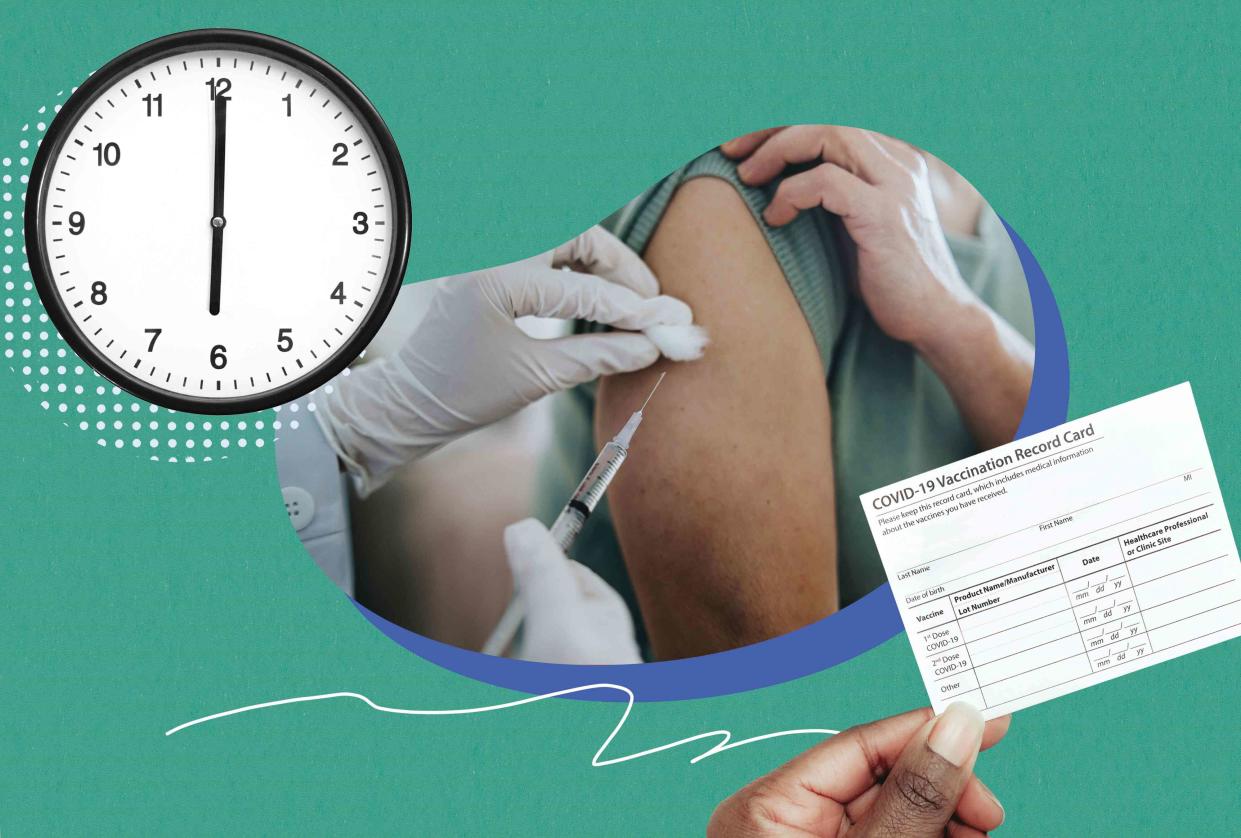Is There a Best Time of Day to Get Your COVID Shot?

Fact checked by Nick Blackmer
A new study suggests that the time of day may influence the effectiveness of the COVID-19 vaccine.
Getting the Pfizer COVID-19 vaccine midday might be associated with fewer breakthrough infections, especially for younger children and older adults, but more studies are needed to confirm these findings.
COVID-19 vaccines are safe and effective no matter when you get it.
If you’re planning to get a COVID-19 vaccine or booster, the time of day might make a difference in its effectiveness, according to a study published in the Journal of Clinical Investigation.
The observational study included more than 1.5 million people in Israel who mostly received the Pfizer mRNA COVID-19 vaccine. Those who got the shot between 10 a.m. and 2 p.m. seemed to experience fewer breakthrough infections.
Jeff Haspel, MD, PhD, a co-author of the study and an associate professor of medicine at the Washington University School of Medicine in St. Louis, said that mass vaccination campaigns could use this information to prioritize particular groups to get the jab between late morning and early afternoon.
“It might not be a terrible idea to think about getting it during this time, because there’s actually very little downside,” Haspel told Verywell.
The correlation was the most significant in children younger than 20 and adults over 50. But the study results would have to be confirmed by clinical trials.
Related:Will You Need Another COVID Booster This Spring?
Why Does the Time of Day Matter When We Get a Vaccine?
Although the researchers don’t know exactly why the time of day might affect vaccine efficacy, it might be related to circadian rhythms—the body’s internal clock that regulates the sleep-wake cycle and the immune system.
“When we get a vaccine, what we’re doing is harnessing our body’s immune system,” said Stuart Campbell Ray, MD, a professor of medicine in the division of infectious diseases at Johns Hopkins University in Baltimore, MD.
The mRNA in Pfizer’s COVID-19 vaccine can teach the body how to build the spike protein that’s on the surface of the coronavirus and trigger an immune response. But the vaccine also contains something called an adjuvant, which helps stabilize the mRNA in our immune cells. It’s plausible that these two arms of the vaccine could be affected by circadian rhythms, Ray said.
Related:Time Is Running Out to Get Free Rapid Tests. Here’s How to Stock Up
Scientists have been studying how circadian rhythms can affect vaccine response. A 2016 study of around 300 older adults found that getting the flu shot in the morning instead of the evening might offer greater protection from the influenza virus.
A 2022 study also suggested the time of day when someone got the COVID-19 shot was associated with certain side effects from the vaccine. For instance, people who got the vaccine in the morning were more likely to report experiencing non-allergic side effects, such as headaches and fatigue.
Elizabeth B. Klerman, PhD, MD, a professor of neurology at Harvard Medical School who co-authored the study, told Verywell that circadian rhythms can change many aspects of physiology. Although the side effects from the vaccine were minimal, researchers should look into how healthcare providers could potentially optimize the timing of vaccination, she said.
“If you can reduce the side effects, then do what you can so that people don’t miss work and they can still do family obligations,” Klerman said. “Or they can be more willing to actually get vaccinated.”
Related:What Should You Do If You Feel Sick but Keep Testing Negative for COVID?
While the time of day may play a role in the body’s response to the COVID-19 vaccine, more research is needed to confirm the association. Ultimately, it’s most important to get vaccinated no matter what time works best for you.
The information in this article is current as of the date listed, which means newer information may be available when you read this. For the most recent updates on COVID-19, visit our coronavirus news page.

